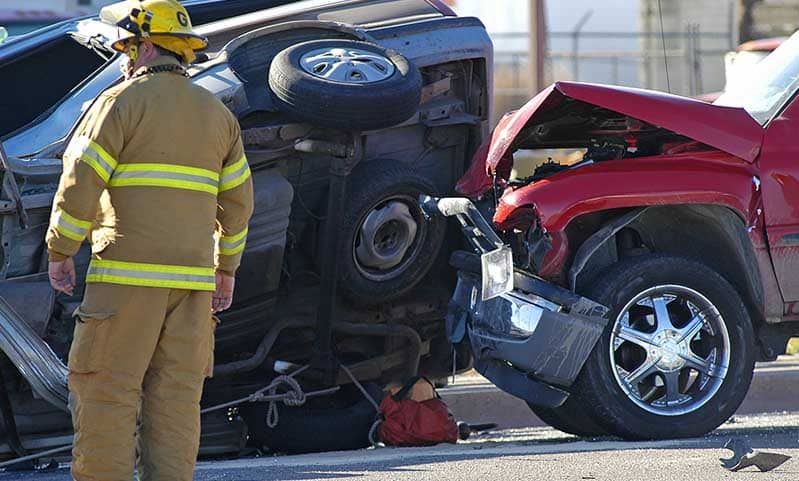Are Car Accidents Criminal or Civil Matters? Vehicle collisions are usually not “accidents” at all. People do not accidentally drive drunk and run red lights.
In fact, some form of human error causes over 90 percent of the car wrecks in New York. For this reason, these incidents could involve criminal liability, civil liability, or both.
The purpose of these two proceedings is one of the biggest differences.
Criminal matters are essentially punitive. Civil actions are usually about obtaining compensation for losses as opposed to “blaming” someone for the crash.
An experienced New York personal injury attorney can obtain fair compensation for these losses.
Victims who do not partner with lawyers almost always end up settling for less.
These settlements usually include money for economic losses, such as medical bills, and noneconomic losses, such as pain and suffering.
Criminal Liability
The aforementioned driver error usually involves either driver impairment or a traffic violation.
Generally, these things are illegal. However, emergency responders only sometimes issue citations and/or press charges.
Many responders view car crashes as civil disputes.
Therefore, they do not want to issue citations and get involved. In other cases, particularly pedestrian accidents, the victim is either critically injured or killed.
As a result, when emergency responders investigate the crash, they only hear the tortfeasor’s (negligent driver’s) side of the story.
Nevertheless, criminal cases such as DUI and vehicular manslaughter are not unheard of in New York.
When these matters go to court, prosecutors must establish guilt beyond a reasonable doubt.
That’s the highest standard of proof in the law. A conviction could mean jail or prison time, but usually means probation.
Traffic violations, such as speeding and failure to yield the right-of-way, are not technically criminal cases in New York.
Therefore, many of the normal Constitutional protections may not apply in these cases. A conviction means a fine.
Civil Liability
Frequently, criminal and civil liability overlap. If the tortfeasor (negligent party) is charged with a criminal infraction or traffic violation, the negligence per se doctrine could apply in civil court.
Tortfeasors could be liable for damages as a matter of law if:
- They violate safety laws, and
- That violation substantially causes injury.
The negligence per se rule could apply even if the tortfeasor “beats” the traffic ticket, DUI, or other case in court. In civil cases, civil juries decide all the facts, including guilt or innocence on a criminal or traffic violation.
Driver impairment claims usually involve the ordinary negligence doctrine. The five types of driver impairment are:
- Alcohol,
- Fatigue,
- Drugs,
- Medical condition, and
- Distraction.
The negligence per se doctrine might or might not apply in these cases.
Alcohol-involved crashes are a good example. Most people are legally intoxicated after three or four drinks.
That could mean negligence per se.
But dangerous impairment begins with the first drink. The ordinary negligence doctrine applies to such crashes.
Negligence is essentially a lack of care. Most drivers have a duty of reasonable care.
They must drive defensively and avoid accidents when possible. If their conduct falls below the standard of care, they could be liable for damages.
Distracted driving is a good example of how this works.
Technically, rolling down the window or talking to a passenger are examples of distracted driving.
But most jurors do not consider such behavior a lack of care. So, compensation is difficult to obtain in these situations. More advanced distraction, such as using a hands-free GPS device while driving, is another matter.
In both ordinary negligence and negligence per se matters, the burden of proof is only a preponderance of the evidence (more likely than not).
That’s the lowest standard of proof in New York law. So, in a civil negligence claim, a little evidence goes a long way.
Most civil claims settle out of court. Out-of-court settlements save time and money.
They also give victims more control over the outcome.
A claim’s settlement value depends on several factors, mostly the strength of the victim/plaintiff’s evidence, insurance company defenses, if any, and the victim’s motivation to settle quickly.
Car crash claims often involve criminal and civil liability.
For a free consultation with an experienced personal injury attorney in New York, contact Napoli Shkolnik PLLC. We do not charge upfront legal fees and only recover a fee when we win the case.
